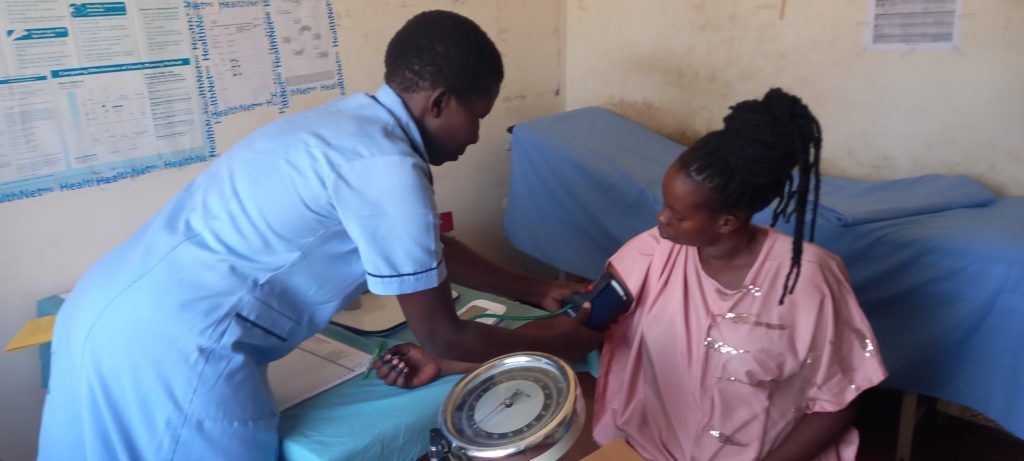Understanding Family Planning Brings Peace at Home
When Mary (not her real name) went to Lainya Primary Health Care Centre (PHCC) for family planning services, she met Charity, a midwife, who asked her to go home and return to the health facility with her husband. The following day, the couple went to the health facility together. While there, her husband said he did not want his wife to use any family planning method from the health facility; he thought it would stop her from giving birth.
Charity counselled the couple and explained the meaning of family planning using the GATHER approach to counselling. GATHER is an acronym for Greet, Ask, Tell, Help, Tell and Return. It empathises the importance of asking the relevant questions before telling a couple about the family planning options available to them. The counsellor helps the couple choose a family planning method based on their response to questions about their desire for a healthy family. After the couple has chosen a family planning method, the health worker explains how to use it. They agree on a date of return to the health facility to follow up on the results and consistency of use where necessary.
During the counselling session, Charity learned that Mary and her husband already had five children, the youngest being 5-months old. After the session, the couple understood the benefits of family planning to the mother, father, children, and the community. They agreed to an implant for three years. Mary and her husband have decided to have their sixth child after the three-year period, and they plan to have eight children in total.
A USAID Global Health Supply Chain programme article published in 2021 showed the contraceptive prevalence rate in South Sudan at only 3 per cent, and nearly 30 per cent of married women in the country had an unmet need for modern contraceptive methods. (USAID Global Health Supply Programme, 2021) Despite the increasing efforts to improve the distribution of contraceptives to health facilities across the country, there is stigma within the communities.
In Terekeka, like several other parts of South Sudan, many men do not allow their wives to go to health facilities for family planning services. Kiden Rose Yakata – a Midwife at Terekeka PHCC said: “Sometimes a woman in her thirties will have 11 children, which is dangerous for mothers and babies.”
To resolve these harmful misconceptions of family planning, Kiden, like Charity, invites men to escort their wives to the facility, where she can have an opportunity to talk to them about child spacing. She is happy that some of them are responding now.
At Litoba PHCU in Kajo-Keji, Poni Susan – a Clinical Officer thought of another way to improve family planning services. She engaged the facility management committee, and they successfully constructed a separate private structure where clients can confidently seek antenatal and family planning services.
The Health Pooled Fund and partners like the South Sudan Health Association are training health workers to equip them with techniques and skills to handle sensitive cases, especially in the Family Planning Unit. Sensitising people in the communities of South Sudan about the benefits of family planning while health workers continue to sensitise people at the health facility level could reduce conflict and increase the use of family planning services.
These stories were collected from HPF-supported health workers: Poni Susan, Kiden Rose Yakata and Charity Denya
References:
USAID Global Health Supply Programme, 2021. Partnering for Family Planning in South Sudan. [Online]
Available at: https://www.ghsupplychain.org/news/partnering-family-planning-south-sudan
[Accessed 25 05 2023].

